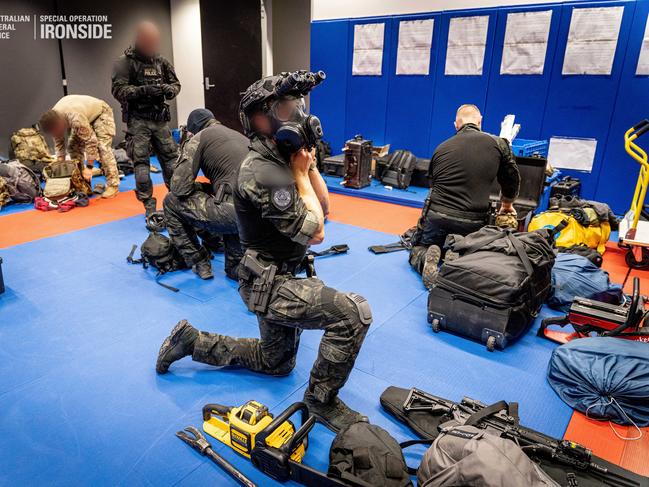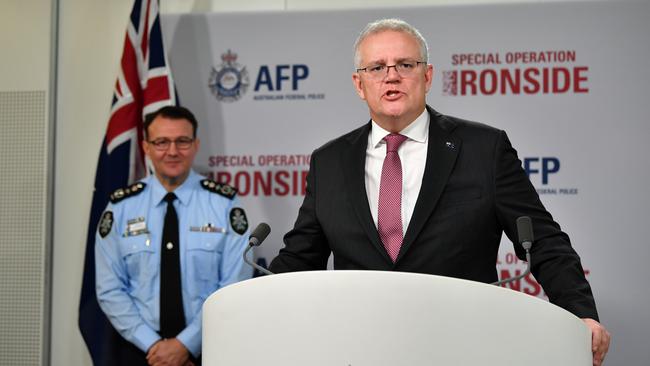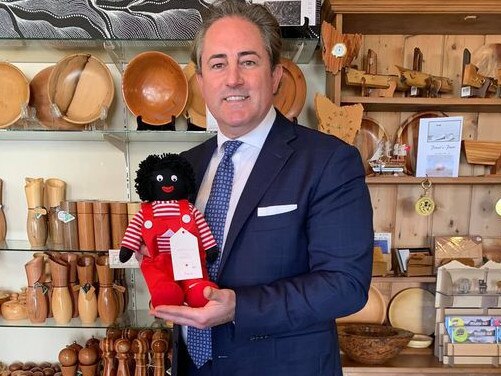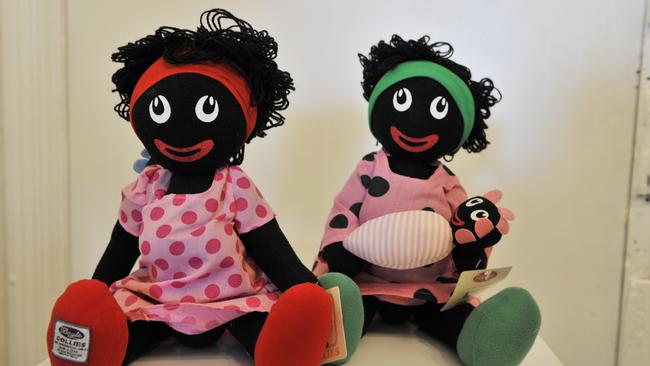Talking Point: Beware the futility of the war on drugs
The demand for drugs will never diminish and removing some traffickers and product from the streets will only create an opportunity for others to fill the gap, says GREG BARNS.
Politics
Don't miss out on the headlines from Politics. Followed categories will be added to My News.
INSANITY is doing the same thing over and over again and expecting different results.
While this pithy and accurate summary of the stupidity of humanity is oft used (wrongly attributed to Albert Einstein, but in fact penned by mystery story writer Rita Mae Brown) it loses none of its punch. And nowhere is the observation more compelling than in the absurd, expensive and utterly futile policy pursued by governments on drugs.
Here are two examples. Recently the Australian Federal Police and the marketing-driven Prime Minister Scott Morrison boasted about smashing drug rings and other international criminal activity. Then last week this newspaper and other media outlets in Australia were reporting the increase in demand for cocaine.
$4m of drugs off Tassie streets as Qld syndicate busted
While Mr Morrison and the AFP puff their chests out about the dangers of taking drugs and likelihood of getting caught, all that removing some traffickers and product from the streets does is create a brilliant opportunity for others to fill the gap. The demand for drugs never diminishes, and now there are market opportunities for new players or existing syndicates to pick up the unmet demand.

On the issue of cocaine, why is there any surprise that this drug is being democratised, as it were? Once a favourite drug of lawyers, medicos, business types and others with plenty of spare coin, cocaine is now available to those with less income.
No amount of mindless sloganeering about the supposed evils of drugs (a favourite phrase of judges and magistrates when they sentence in drug cases but like water off the proverbial duck’s back to nearly everyone in the community) will stop the rise of cocaine. And, irrespective of the amount of taxpayer funds and resources thrown at “law enforcement”, there is no drop in supply.
If the war on drugs, as it has been called since US President Richard Nixon coined the term for political advantage in the late 1960s, was designed to reduce the prevalence of drugs in developed world societies, and the supply from developing world nations from Colombia to Afghanistan, then there is only word to describe it — fail.
As genuinely liberal newspaper The Economist so aptly put it: “The drug war only ever yields pyrrhic victories.”
So, why do we continue with repeating such stupidity? Because moral conservatives, who are at best irrational and at their worst delusional, influence weak politicians. And because police agencies use the war on drugs as a means of building their empire, and as a promotion tool for officers.
Spend time in the drug squad, pick up a few grains of sand on the drug beach call it a win, and you climb the police hierarchy. And finally, because there is so much fear-driven nonsense about the dangers of drugs. Alcohol is more harmful than ecstasy, cocaine, cannabis and MDMA when assessed by harm to the individual and to others. But one is legal and the others are illegal. Go figure.
As we know drug policy is built on prejudice, racism and history, not rationality. Alcohol is acceptable to the Western Empire so let’s make sure it’s legal.
And we pursue the folly of a drug-free society. Governments and some conservative non-government organisations preach this BS. But, as Carl Hart, the renowned Columbia University based psychologist, has observed: “People have used drugs since we have inhabited the earth. The notion of a drug-free society is a political statement, and not one that’s grounded in reality.”

There is change coming as communities get smart about drug use. In many US states, Latin American nations and Canada cannabis is legal.
In Portugal for over two decades, possession, use and small-scale selling of drugs has been removed from the criminal justice ambit. As Scott Akin and Clayton Misher noted on The Conversation last year, Portugal “has much lower rates of drug use than the European average. Use of cocaine among young adults age 15 to 34, for example, is 0.3 per cent in Portugal, compared with 2.1 per cent across the EU. Amphetamine and MDMA consumption is likewise lower in Portugal. Last year, voters in Oregon decriminalised drugs.”
Sadly here in Tasmania our police and courts waste huge sums of scarce taxpayer funds and time on prosecuting individuals who simply possess and use drugs, in many cases not because of an addiction but because they enjoy it. Cocaine is a good example. It’s a drug taken generally when people are having fun. Similarly, party drugs at music festivals.
Why doesn’t Tasmania end the madness of pursuing a pointless and frankly unjust policy that penalises you if you enjoy cocaine but not alcohol? At least let’s have a discussion.
The last word on the stupidity of drugs policy goes to a senior judge who once told this columnist: “Whenever I sentence a trafficker I create a vacancy in the market.”
Golliwog furore a reminder to walk in other people’s shoes
June 6, 2021
READING through the comments on social media and other sites about the politically opportunist manufactured furore over golliwog dolls, one is struck by the extraordinary inability to do what Atticus Finch, the hero lawyer of Harper Lee’s book To Kill a Mockingbird, urged his children to do.
Atticus, acting for a black man accused of the rape of a white woman in a racist Southern US town, mused that you “never really understand a person until you consider things from his point of view … until you climb inside of his skin and walk around in it”.
Wise and compassionate sentiments sadly lost on those who think it’s OK for a shop in Richmond to be selling what is clearly an offensive symbol of a deeply dysfunctional view of the world.
Of course the controversy over golliwog dolls didn’t need to happen at all. It was a contrived story by a Liberal Party apparatchik no doubt using the publicity for political purposes.
That it was the subject of a Facebook post by an otherwise obscure local government official, Brendan Blomeley of Clarence City Council, reflects poorly on him and his judgment. But the response of many, along the lines of outrage and indignation that golliwog dolls should be thought to be in a museum of racism rather than being sold on the streets, says we have a long way to go in Tasmania when it comes to understanding those who are not Anglo-European.
Council vigil: Golliwogs ‘a symbol of a dark past’
Golliwogs ‘not racist’ says alderman in anti-PC post

Mr Blomeley says he has fond memories of his grandmother knitting golliwogs for him and his siblings. Others on social media echo this sentiment. It’s along the lines of “I loved my golliwog doll when I was a kid”.
Then there is the even more regressive sentiment that thinks of the offence taken to golliwog dolls as being part of the attack on freedom of speech. This is a favourite theme of conservatives in Australia, and the likes of Pauline Hanson, who view themselves as champions of standing up to “political correctness”, a term often used to defend the wish to continue the use of offensive, exclusionary language and symbols.
What is at issue here is that those who uncritically support Mr Blomeley and the legitimacy of what is clearly a racist symbol to many, seemingly have missed to chance to think outside their own perspective of the world. They cannot, to use another analogy along the lines of the Atticus Finch injunction, put themselves in the shoes of those in our community who are Indigenous, who have come to our shores from other parts of the world, or whose heritage is not that of Europe.
So let’s do that and view the golliwog doll from the perspective of others. There is no doubt the golliwog doll is a symbol of racism and exclusion, in the same way as symbols like black minstrels.
Ferris State University in Michigan hosts the Jim Crow Museum of Racist Memorabilia. This museum includes, among the symbols of a divided and repressive past, golliwogs. Why? Because as Professor David Pilgrim, in an explainer on the museum website, observes” “The Golliwog was created during a racist era. He was drawn as a caricature of a minstrel – which itself represented a demeaning image of blacks … later Golliwogs often reflected negative beliefs about blacks – thieves, miscreants, incompetents. There is little doubt that the words associated with Golliwog – Golly, Golli, Wog, and Golliwog, – are often used as racial slurs.”
It is not suggested here that those hundreds of individuals who have written in support of the visible presence of the golliwog in a Richmond shop are racists or that they wish to wittingly fuel a divide between the Anglo-European Tasmania and “the other”, to use the great Palestinian intellectual Edward Said’s phrase. But support for the golliwog is inextricably linked with racism.

New Zealand writer Morgan Godfrey has put it this way” “People who want to revive the Golliwog probably don’t want to perpetuate racism. But the two can’t be divorced. The Golliwog is to playtime what blackface is to performance. They’re caricatures that are interwoven with the violent oppression of people of colour. The Golliwog was used to reinforce stereotypes about black appearance and character. The wild eyes and hair spoke to black appearance, but the real message was that blacks were wanton. The big lips represented black appearance too, but the outlandish redness reinforced the stereotype that blacks were hyper-sexualised.”
That is the essence of it. Perhaps the supporters of Mr Blomeley’s misguided campaign might reflect, and see it from the perspective of those whose lives are already made difficult because of their skin colour in a white-dominated society. And perhaps it is time to revive the stunning multicultural celebration called World Party, which now Supreme Court justice Stephen Estcourt created in response to racist attacks in Tasmania a decade ago.
Hobart barrister Greg Barns SC is a former adviser to state and federal Liberal governments.


